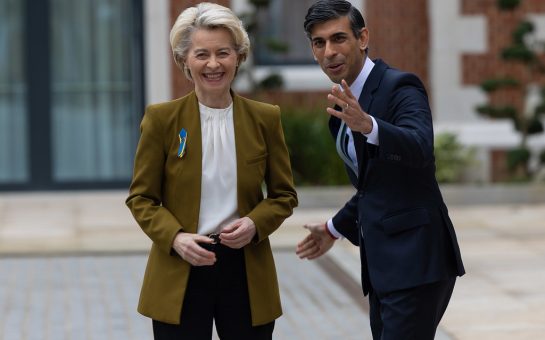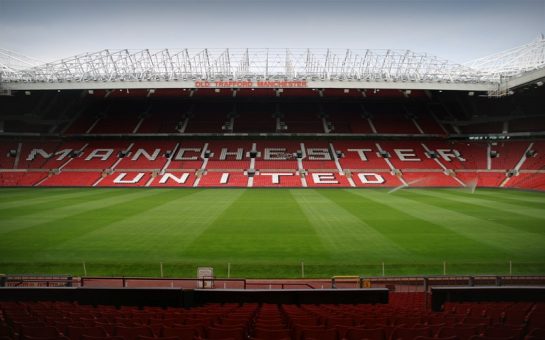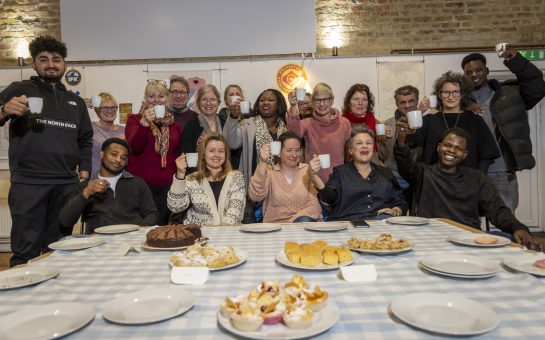Now entering its seventh year, the Syrian crisis has caused ceaseless horror, loss and devastation.
The Syrian civil war emerged against the optimistic background of the Arab Spring, which toppled authoritarian regimes in Tunisia, Libya and Egypt.
Yet the war in Syria appears far from over and although President Assad has still to win the civil war, it now seems almost impossible for him to lose.
A report published last week by Manchester-based charity Human Appeal revealed the startling true cost of the crisis and the significant challenges faced by humanitarian agencies operating in the region.
The civil war has seen over 500,000 Syrians killed, with almost as many fatalities due to indirect consequences, including a lack of healthcare, while a further 1.5million have been injured.
More than 13.5million are in need of humanitarian assistance, including 4.72million in hard to reach areas.
And a war which has an estimated cost of over $200billion has left 80% of Syrians in poverty.
“This is the biggest crisis after the Second World War,” Othman Moqbel, CEO of Human Appeal, told MM.
“The situation is becoming worse and worse, and it seems there is no solution.”
The World Health Organisation (WHO) has estimated 2million casualties caused by the war while life expectancy for Syrians has fallen from 70 in 2010 to 55 in 2015.
Healthcare is “one of the major problems” facing Syrians and humanitarian agencies, Mr Moqbel said.
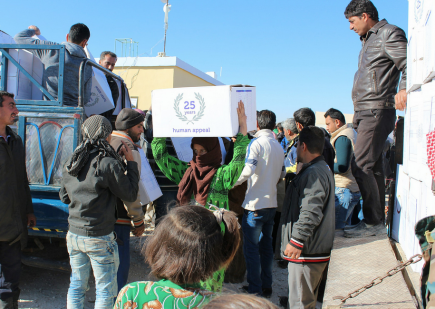
COME TOGETHER: Human Appeal are urging collaboration to tackle the crisis, during which life expectancy for Syrians has fallen from 70 in 2010 to 55 in 2015
“75% of the health facilities in Syria were destroyed either partially or completely, and in many cases they depend on international agencies to come and help, and support and provide,” he said.
These problems are exacerbated by “air strikes that target the hospitals and clinics”, Mr Moqbel explained, highlighting a recent incident he referred to as “Black Monday”, which destroyed hospitals and killed hundreds.
‘We cannot reach them’
Although the infamous siege of eastern Aleppo is effectively over, the UN estimates 643,780 people are living in 13 besieged areas across Syria – including Deir ez Zour, under siege from ISIS, which can only be reached by use of air-drops.
Living in a desperate situation, behind the siege, civilians are denied essential food, medicine and goods, seized by soldiers or sold on the black-market at extortionate prices.
“There are a lot of people who are in need in these besieged areas, but we cannot reach them,” said Mr Moqbel.
“We have done a lot of discussion from Geneva to New York that the UN should intercede, at least to open a humanitarian corridor for humanitarian agencies to support those who are in need inside these areas.
“This hasn’t happened yet.”
Although reports and images of refugees and migrants frequently capture the headlines, they do not tell the full story of the astronomical crisis.
Syria now has the largest refugee population in the world, some 4.9million UN registered refugees.
These people face huge obstacles and depleted conditions in refugee camps, as they struggle to find safety and shelter around the Levant, Europe and the world.
“These conditions are a paradise compared to the situation of internally displaced people (IDPS) inside Syria,” Mr Moqbel claimed.
Syria has the largest number of people displaced by any conflict in the world, 11million of a pre-war population of 22million, of whom 6.3million have been IDPs since March 2011.
“50 families every hour became displaced since the beginning of the crisis in Syria,” said Mr Moqbel.
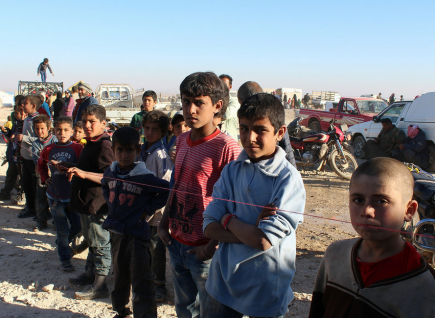
LOST GENERATION: UNICEF estimates 2.8million children are out of education
Human Appeal sees IDPs in desperate positions.
“You see them under trees where they’ve built some shelter, some of them have tents, some of them use caves,” Mr Moqbel added.
“This is much worse than the situation inside the refugee camps.
“There is a lot of work that has been done, but we expect more to be done because we are talking about a whole country, two thirds of the population, who we need to support in one way or another
“It’s an emergency,” he said, speaking about international efforts to help Syrian IDPs and refugees.
The civil war is also having a catastrophic impact on the educational prospects of Syria’s children.
UNICEF estimates 2.8million are out of education due to the conflict, something Mr Moqbel calls one of the most “dangerous problems” of the war.
“A generation is lost… a generation that will be uneducated, a generation that can easily be targeted by extremist groups.”
This lack of education poses a significant threat to the post-war rebuilding of Syria – something Mr Moqbel is highly concerned about.
“Imagine you have now hundreds of thousands of children who were born just in the last six years and in addition to that you have those who are not able to go into the education system for lots of different reasons.
“That will affect the future of the whole country.”
No light
With no long term end to the conflict in sight the future of Syria and its people hangs precariously in the balance.
Even once the civil war is over the nation faces many more arduous years ahead.
“First we need to think about a solution for the crisis, because today there is no light at the end of the tunnel,” said Mr Moqbel.
“The international community must work to find a solution to the root of the problem, and after that the next step is the future.
“We need to come together again, that includes governments, INGOs, UN agencies et cetera, to have something like a Marshall Plan to rebuild Syria.”
Surmounting the crisis will not be an easy process Mr Moqbel admits, identifying several key challenges.
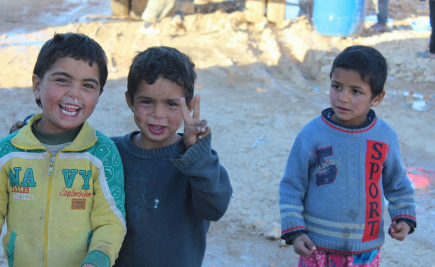
HELP THE FUTURE: A spare pound or two could aid future Syrian generations to build a life
“Number one is the war itself.
“Number two we don’t have access to humanitarian corridors to reach those in need in several areas.
“Number three there are groups fighting from all around the world in parts or Syria, and the continuous humanitarian problem makes the whole issue very difficult to deal with.”
Mr Moqbel is also concerned that, like many refugee crisis before, for decades to come Syrians could find themselves displaced and in camps.
“The international community needs to be sure that after rebuilding the country people can go back to their homes, because many of them want to go back.”
Finally Mr Moqbel praised the work of the UK government, adding: “We still have to do more, work with MPs, councillors and government to lobby other governments to find a solution for the problem and calm this bloodshed.
“Try to support Human Appeal in our work to support those who are in need.
“An extra pound in your pocket could help someone who needs medicine, who, if we don’t provide that medicine, might die.
“We need to unite to support the ones in need.”
To donate to Human Appeal or for more information call: 0161 2250225
Visit: https://humanappeal.org.uk/?src=donate
Or email: [email protected]

